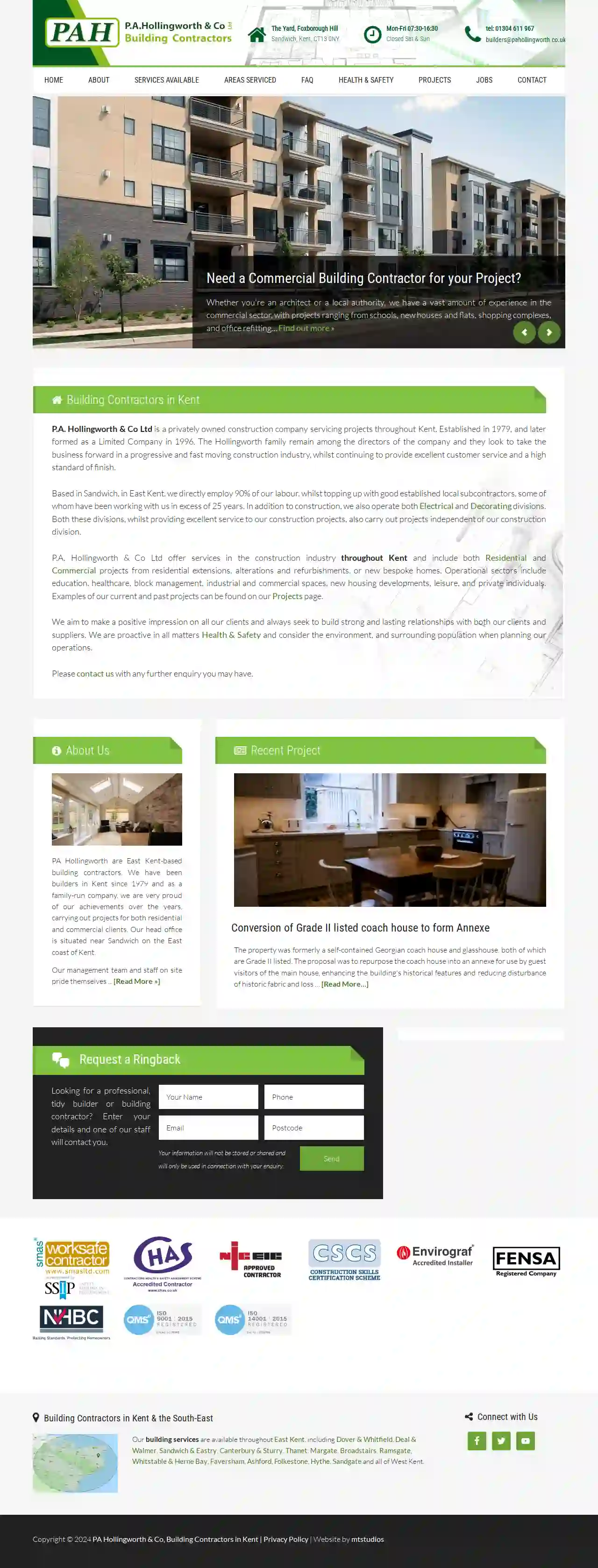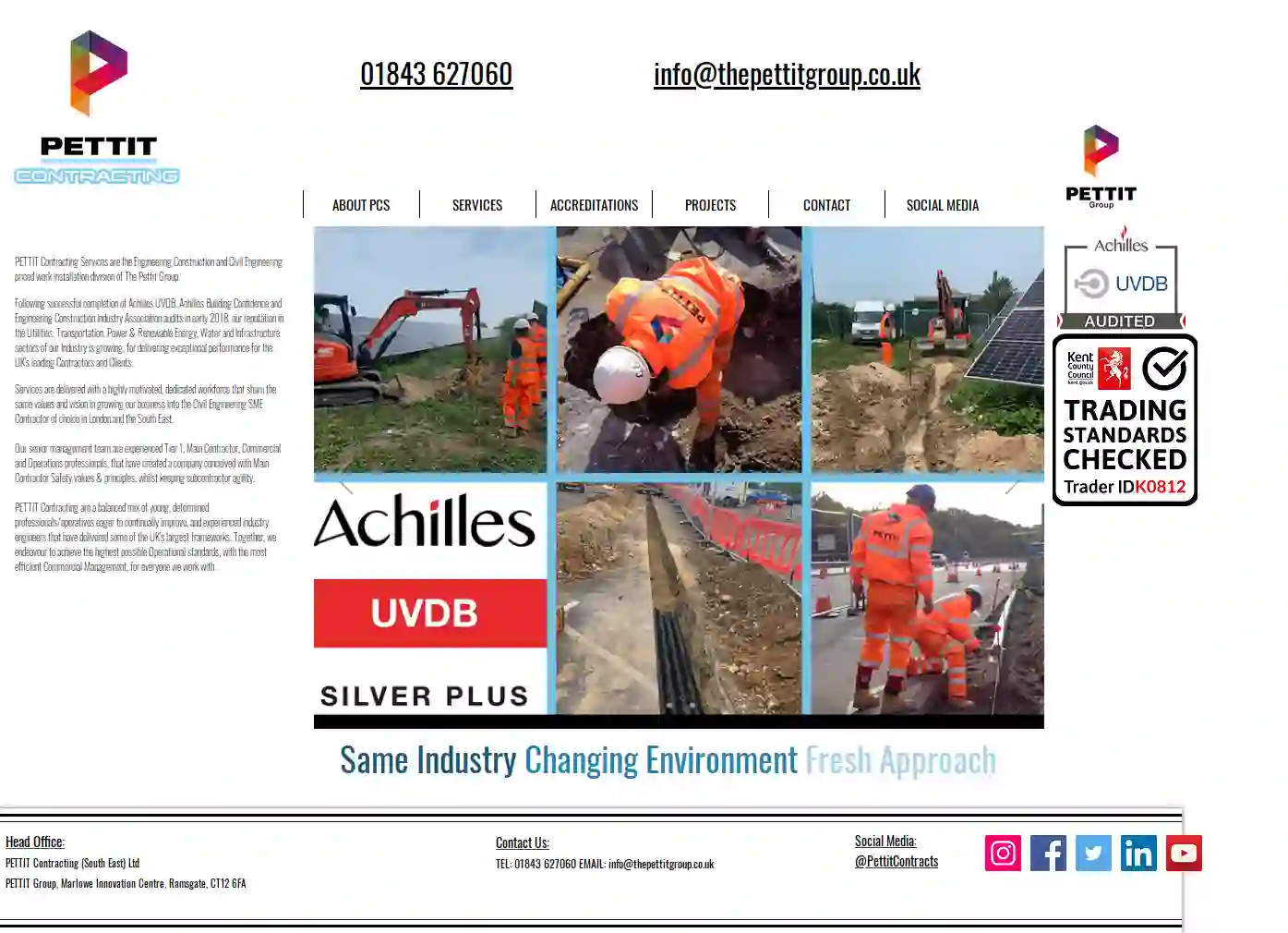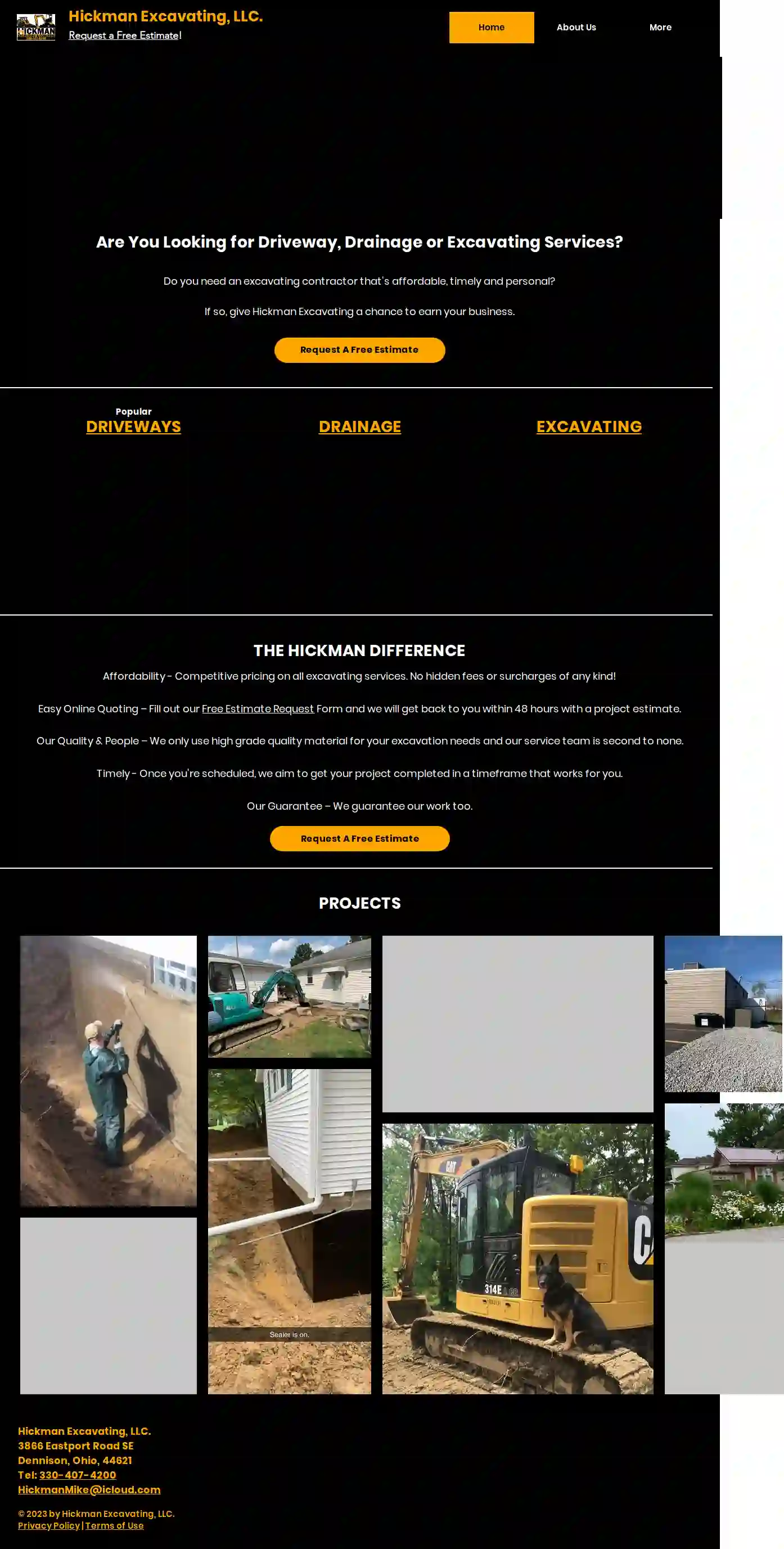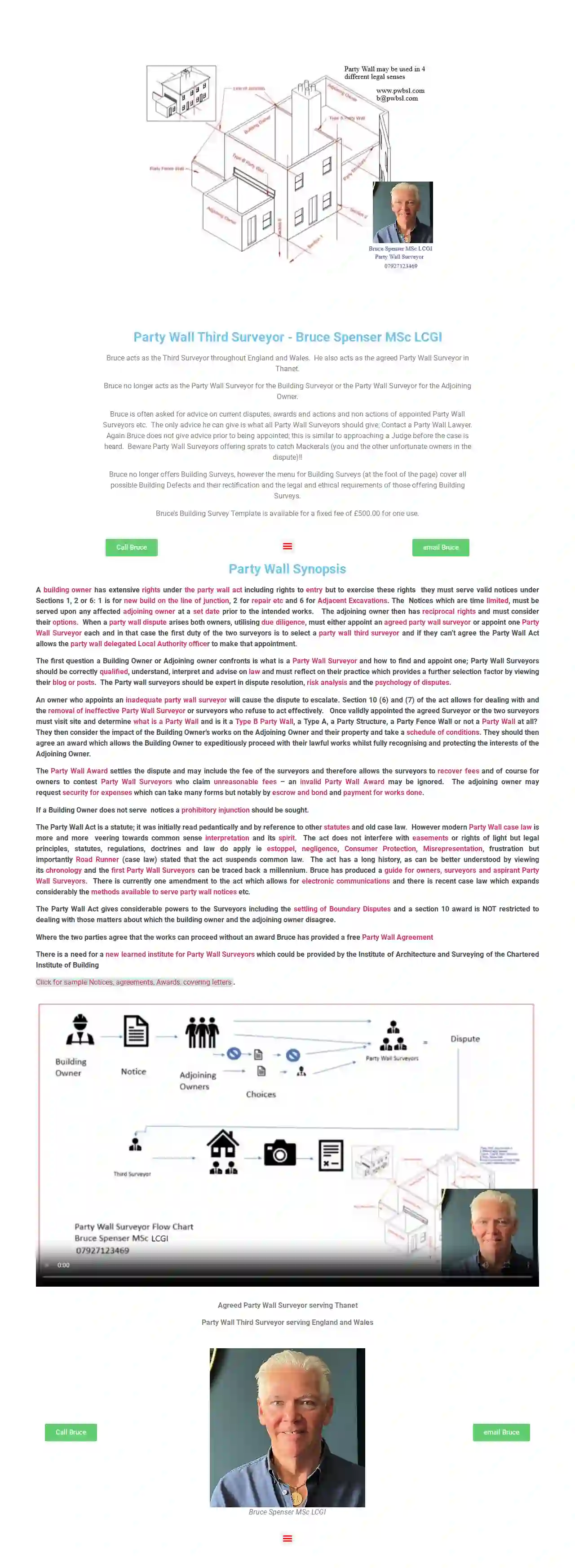Excavation Contractors Northfleet
Top 10 Excavation Contractors in Northfleet
Get 3 FREE Excavating Contractors quotes for your project today! Compare profiles, reviews, accreditations, portfolio, etc... and choose the best deal.

P A Hollingworth & Co
4.69 reviewsThe Yard, Foxborough Hill, Sandwich, CT13 0NY, GBNeed a Commercial Building Contractor for your Project? Whether you’re an architect or a local authority, we have a vast amount of experience in the commercial sector, with projects ranging from schools, new houses and flats, shopping complexes, and office refitting… Find out more » Want a Beautifully-Finished Extension? Our experienced, exemplary builders in Kent have been creating gorgeous extensions, interiors, loft conversions and more since 1979. We are renowned for our quality construction and expertise… Find out more » Need to Refurbish Your Office Space? If you need to create a professional image for your clients, we can help. We can design and implement a complete restoration or refurbishment for your space, whether it be an office, foyer, restaurant, places of worship, shop, hotel or school… Find out more » Looking for Luxury in the Kitchen? Has your kitchen grown rough around the edges? Using traditional construction methods, expert craftsmanship, and quality finishes, our builders in Kent can turn your outdated kitchen into the heart of your home… Find out more » Why Choose Us for your Commercial Project? We are extremely proud of our work and only offer qualified and experienced project managers, estimators, site managers and supervisors, and directly employ trained and experienced site operatives with DBS clearance… Find out more » Dying to Modernise Your Dated House? From loft conversions for extra space to creating an open-plan feel to your house, we offer complete, bespoke construction to give your house a makeover, managing the project within your budget from start to finish… Find out more » Need Health & Safety Compliant Builders? If you are looking for safe builders in Kent, we recognise the general principles of prevention and protection, using modern construction methods and hold certifications for many safety and construction organisations… Read more » Want to Give Your Bathroom an Elegant Touch? If you need to update your bathroom, but want reliable, professional tradesmen, our builders in Kent have over 33 years of experience. We are the experts in turning tired bathrooms into a beautiful haven of escape… Find out more » P.A. Hollingworth & Co Ltd is a privately owned construction company servicing projects throughout Kent. Established in 1979, and later formed as a Limited Company in 1996. The Hollingworth family remain among the directors of the company and they look to take the business forward in a progressive and fast moving construction industry, whilst continuing to provide the same high quality service and workmanship that has been the hallmark of the company for over 40 years.
- Services
- Why Us?
- Gallery
Get Quote
Oatmor Harris Excavations Ltd
1Deal, GBKent County Surfacing: Your Trusted Partner for Roads, Driveways, and More Kent County Surfacing is a family-run business with a rich history spanning over 30 years. Our experienced team specializes in all aspects of civil works, from new driveways and construction projects to car parks, roadways, and sewer connections. We are committed to providing our clients with honest expert advice, creative designs, and meticulous project management. We take pride in upholding the highest standards of planning, safety, and support throughout every project. We are proud of our hard-earned reputation for consistent progress, courtesy, and work ethic. We are regularly commended for our dedication to customer satisfaction. We are happy to provide references from our previous projects upon request. Explore our website to learn more about our services, view examples of our work, and discover our trusted affiliates who help us deliver exceptional results.
- Services
- Why Us?
- Gallery
Get Quote
Thanet Drainage
4.821 reviewsThanet, GBThanet Drainage: Your Trusted Drain Experts in Kent Thanet Drainage is your go-to solution for all your drainage needs in Kent. We are a team of experienced and accredited professionals dedicated to providing reliable, rapid, and cost-effective drain unblocking and repair services. Whether you're dealing with a blocked drain, a burst water main, or need a comprehensive CCTV drain survey, we have the expertise and equipment to handle any challenge. Serving the Entire Thanet Area and Beyond We proudly serve the entire Thanet area, including Ramsgate, Margate, Broadstairs, Canterbury, Whitstable, Herne Bay, Sandwich, Deal, Dover, Birchington, and Folkestone. Our commitment to customer satisfaction is unwavering, and we strive to provide a seamless and stress-free experience for every client. Our Services We offer a wide range of drainage services, including: Drain Unblocking Drain Relining and Patch Lining High Pressure Water Jetting Excavation CCTV Drain Surveys Drain Descaling Burst Water Main Repairs Why Choose Thanet Drainage? We are a team of highly skilled and experienced drainage professionals who are committed to providing our clients with the highest quality service. We are also fully accredited and insured, giving you peace of mind that your project is in safe hands. Contact Us Today For a free quote or to discuss your drainage needs, please contact us today. We are available 24/7 to assist you with any emergency situations.
- Services
- Why Us?
- Accreditations
- Gallery
Get Quote
Pettit Contracting (south east) Ltd
52 reviewsPETTIT Group, Marlowe Innovation Centre, Ramsgate, CT12 6FA, GBPETTIT Contracting Services are the Engineering Construction and Civil Engineering priced work installation division of The Pettit Group. Following successful completion of Achilles UVDB, Achilles Building Confidence and Engineering Construction Industry Association audits in early 2018, our reputation in the Utilities, Transportation, Power & Renewable Energy, Water and Infrastructure sectors of our Industry is growing, for delivering exceptional performance for the UK's leading Contractors and Clients. Services are delivered with a highly motivated, dedicated workforce that share the same values and vision in growing our business into the Civil Engineering SME Contractor of choice in London and the South East. Our senior management team are experienced Tier 1, Main Contractor, Commercial and Operations professionals, that have created a company conceived with Main Contractor Safety values & principles, whilst keeping subcontractor agility. PETTIT Contracting are a balanced mix of young, determined professionals/operatives eager to continually improve, and experienced industry engineers that have delivered some of the UK's largest frameworks. Together, we endeavour to achieve the highest possible Operational standards, with the most efficient Commercial Management, for everyone we work with.
- Services
- Why Us?
- Gallery
Get Quote- Mu
Murphy Excavating
51 reviewsDover, GB- Services
- Why Us?
Get Quote 
Hickman Excavating, LLC.
13866 Eastport Road SE, Dennison, 44621, GBAre You Looking for Driveway, Drainage or Excavating Services? Do you need an excavating contractor that's affordable, timely and personal? If so, give Hickman Excavating a chance to earn your business. THE HICKMAN DIFFERENCE Affordability - Competitive pricing on all excavating services. No hidden fees or surcharges of any kind! Easy Online Quoting – Fill out our Free Estimate Request Form and we will get back to you within 48 hours with a project estimate. Our Quality & People – We only use high grade quality material for your excavation needs and our service team is second to none. Timely - Once you're scheduled, we aim to get your project completed in a timeframe that works for you. Our Guarantee – We guarantee our work too.
- Services
- Why Us?
- Gallery
Get Quote- Ed
Eddy's Land Clearing & Excavating, LLC
4.525 reviewsDover, GB- Services
- Why Us?
Get Quote 
Advanced Groundwork Specialist
1Unit 50, The Oaks Business Park, Invica Way, Ramsgate, Kent, CT125FD, GBAGS Ltd - Advanced Groundwork Specialist AGS have been providing Thanet, Kent and London with reliable residential and commercial groundworks service for over 20 years. We offer a wealth of experience to all our clients and specialise in all aspects of groundworks. Our reputation in the local area for competitive prices and quality is second to none, putting the needs of our customers first at all times. We ensure that our customers not only get what they require, but also a high-level of service too. Whether you are after a new driveway, extension or your house underpinning, we will endeavour to complete the task in the given timescale with minimal distraction to you. Accreditations Like any reputable contractor, we are accredited by CHAS and CSCS. What Is CHAS? CHAS, or the Contractors Health and Safety Assessment Scheme as it is known in its proper form, is a significant scheme promoting the benefits of effective Health and Safety within industries and business. The CHAS certification or certificate for accreditation is meant for consultants and contractors who apply for work with private and public sector organisations. The Accreditation Certificate is valid for a period of 12 months from the last date of assessment stating as compliant. Maintaining the certification requires the supplier to be assessed on an annual basis. What Is CSCS? CSCS is the leading skills certification scheme within the UK construction industry. CSCS cards provide proof that individuals working on construction sites have the required training and qualifications for the type of work they carry out. The Scheme keeps a database of people working in construction who have achieved or are committed to achieving a recognised construction related qualification. Where we are accredited by these two organisations, you have peace of mind knowing that we are more than capable of carrying out the contract to an expected level of service and safety.
- Services
- Why Us?
- Accreditations
- Gallery
Get Quote- Di
Diesel Excavation LLC
52 reviewsDover, GB- Services
- Why Us?
Get Quote 
Bruce Spenser MSc LCGI | Party Wall Third Surveyor
4.8161 reviewsRamsgate, GBParty Wall Third Surveyor - Bruce Spenser MSc LCGI Bruce acts as the Third Surveyor throughout England and Wales. He also acts as the agreed Party Wall Surveyor in Thanet. Bruce no longer acts as the Party Wall Surveyor for the Building Surveyor or the Party Wall Surveyor for the Adjoining Owner. Expert Advice and Guidance Bruce is often asked for advice on current disputes, awards and actions and non-actions of appointed Party Wall Surveyors etc. The only advice he can give is what all Party Wall Surveyors should give; Contact a Party Wall Lawyer. Again Bruce does not give advice prior to being appointed; this is similar to approaching a Judge before the case is heard. Beware Party Wall Surveyors offering sprats to catch Mackerals (you and the other unfortunate owners in the dispute)!! Building Surveys Bruce no longer offers Building Surveys, however the menu for Building Surveys (at the foot of the page) cover all possible Building Defects and their rectification and the legal and ethical requirements of those offering Building Surveys. Bruce’s Building Survey Template is available for a fixed fee of £500.00 for one use. Contact Bruce Call Bruce
- Services
- Why Us?
- Gallery
Get Quote
Over 11,537+ Excavation Contractors onboarded
Our excavation experts operate in Northfleet & beyond!
ExcavationHQ has curated and vetted the Best Excavation Businesses in Northfleet. Find a trustworthy business today.
Frequently Asked Questions About Excavation Contractors
- Project Size and Scope: Larger, more complex excavations naturally take longer.
- Soil Conditions: Rocky or challenging soil types can slow down progress.
- Site Accessibility: Limited access might require more time for maneuvering equipment and hauling materials.
- Weather: Inclement weather can cause delays.
- Permitting and Inspections: Waiting for permits or inspections can extend the timeline.
- Clearly Define the Scope: Outline the project's goals, including the excavation area, depth, grade, and intended use.
- Obtain Necessary Permits: Research and acquire any required permits from your local authorities.
- Mark Utility Lines: Contact your utility companies to locate and mark underground utilities to prevent damage.
- Communicate with Neighbors: Inform your neighbors about the project's timeline and potential noise or disruptions.
- Prepare the Site: Clear any obstacles, such as vegetation, furniture, or structures, from the excavation area.
- Discuss Safety Protocols: Review safety procedures with the contractor to ensure a safe work environment.
How long does an excavation project take?
What is the difference between cut and fill excavation?
Cut: Involves excavating soil from an area where the existing grade is higher than the desired grade.
Fill: Refers to using the excavated soil ('cut' material) to raise the grade in an area where the existing grade is lower than desired.
This method minimizes the need to import or export soil, reducing costs and environmental impact. It's commonly used for site preparation, road construction, and landscaping.
What should I do before excavation starts?
What is the difference between topsoil and subsoil?
Topsoil: The uppermost layer, typically rich in organic matter, nutrients, and microorganisms. It's essential for plant growth and is often darker in color.
Subsoil: The layer beneath the topsoil, containing less organic matter and generally denser. It provides support for roots but is less fertile than topsoil.
During excavation, topsoil is often removed and preserved separately for later use in landscaping, while subsoil is typically used for backfilling or other less demanding applications.
How long does an excavation project take?
- Project Size and Scope: Larger, more complex excavations naturally take longer.
- Soil Conditions: Rocky or challenging soil types can slow down progress.
- Site Accessibility: Limited access might require more time for maneuvering equipment and hauling materials.
- Weather: Inclement weather can cause delays.
- Permitting and Inspections: Waiting for permits or inspections can extend the timeline.
What is the difference between cut and fill excavation?
Cut: Involves excavating soil from an area where the existing grade is higher than the desired grade.
Fill: Refers to using the excavated soil ('cut' material) to raise the grade in an area where the existing grade is lower than desired.
This method minimizes the need to import or export soil, reducing costs and environmental impact. It's commonly used for site preparation, road construction, and landscaping.
What should I do before excavation starts?
- Clearly Define the Scope: Outline the project's goals, including the excavation area, depth, grade, and intended use.
- Obtain Necessary Permits: Research and acquire any required permits from your local authorities.
- Mark Utility Lines: Contact your utility companies to locate and mark underground utilities to prevent damage.
- Communicate with Neighbors: Inform your neighbors about the project's timeline and potential noise or disruptions.
- Prepare the Site: Clear any obstacles, such as vegetation, furniture, or structures, from the excavation area.
- Discuss Safety Protocols: Review safety procedures with the contractor to ensure a safe work environment.
What is the difference between topsoil and subsoil?
Topsoil: The uppermost layer, typically rich in organic matter, nutrients, and microorganisms. It's essential for plant growth and is often darker in color.
Subsoil: The layer beneath the topsoil, containing less organic matter and generally denser. It provides support for roots but is less fertile than topsoil.
During excavation, topsoil is often removed and preserved separately for later use in landscaping, while subsoil is typically used for backfilling or other less demanding applications.